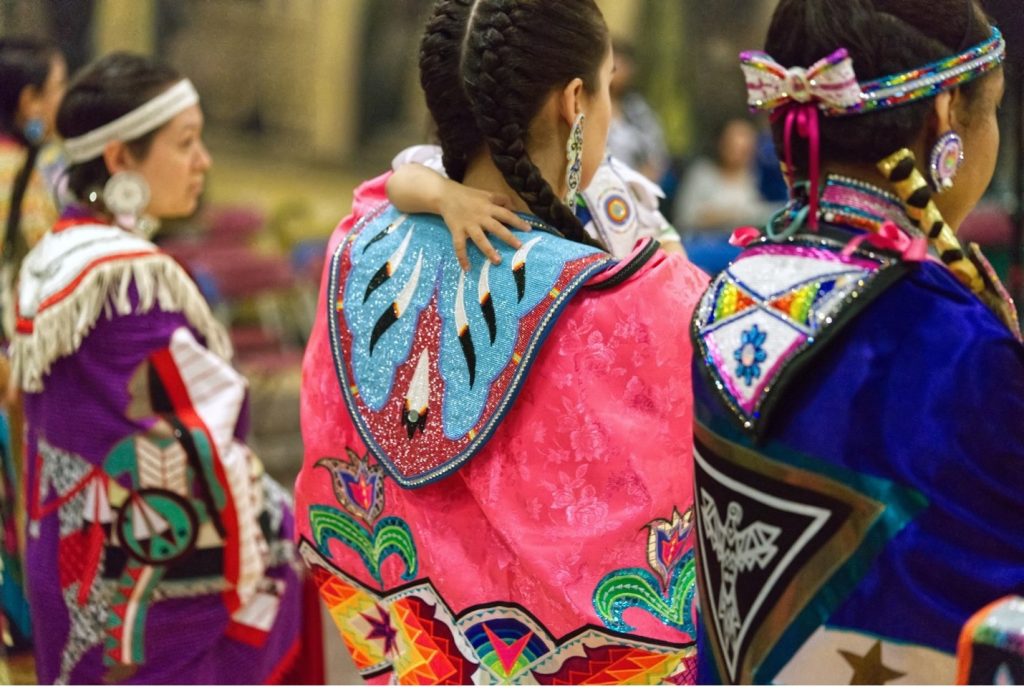Module 4: Related Practice Issues: Trauma-Informed Care, Supporting Strength – based and Resiliency Approaches, Primordial Prevention
Section 2 (continued)

 Health professional licensing bodies policy and guidelines for standards of care and core competencies need to include information regarding system barriers, culturally nuanced risk factors or emerging self-determining efforts by Indigenous women to reclaim and engage in Indigenous approaches to prevention, healing and wellness regarding their CVD/s illness.
Health professional licensing bodies policy and guidelines for standards of care and core competencies need to include information regarding system barriers, culturally nuanced risk factors or emerging self-determining efforts by Indigenous women to reclaim and engage in Indigenous approaches to prevention, healing and wellness regarding their CVD/s illness.
For example, the College of Physicians and Surgeons of Ontario (CPSO) maintains that collaborating with patients and other healthcare providers is an essential principle of practice (Royal College of Physicians and Surgeons of Canada, 2021).
“Collaboration with an individual patient is essential to providing good medical care. The physician must work with the patient in order to understand the patient’s health care needs, to formulate treatment plans that are optimal for the patient, to ensure that the patient remains informed about his or her care, and to address patient questions and concerns. To maximize the effectiveness of collaboration, physicians must have patients’ trust, which is maintained, in part, through effective communication and treating patients with respect.”
(Royal College of Physicians and Surgeons of Canada, 2021, p. 9)
The Registered Nurses Association of Ontario (RNAO) formally advocates for the inclusion of mandatory Indigenous Studies courses in the regular nursing school curriculum and to create a nursing practice standard to the College of Nurses of Ontario (Byrnes, 2023).
Indigenous Allyship Considerations
As the late sociologist Allan Johnson wrote:
“What privilege does is load the odds one way or the other so that the chance of bad things happening to white people as a category of people is much lower than for everyone else, and the chance of good things happening is much higher. Privilege is not something a person can have, like a possession… Instead, it is a characteristic of the social system — like a rule in a game — in which everyone participates.” Consequently, this may explain why so many people suggest that true allyship can only begin by helping disrupt the rules of the game
(Foxman, 2022).
An Ally is identified as someone whose privilege insulates them from the harsh realities experienced by others. Further, that as a first step to being a true Ally, one needs to understand the degree to which one might be privileged and how it might be ‘rigging the system’. Allyship is an action and a skill that requires deep and ongoing self-reflection about how one is consciously or unconsciously contributing to systems of inequality (Foxman, 2022).
It is important to note that in the spirit of self-determination, an important TRC implementation principle of ‘nothing for us – without us’ is emphasized. Indigenous communities identify their health priorities, and many deliver their health care services. It is noted that there is great promise in community self-determination both in health care and community – led research as advocacy for policy reform (Richmond & Cook, 2016 in Royal College of Physicians and Surgeons of Canada, 2019).
Royal College of Physicians and Surgeons of Canada. (2021). Indigenous Health in Specialty Postgraduate Medical Education—Education Guide. 1–73.
Byrnes, C. (2023). Strategies to uphold the calls to action as proposed by the Truth and Reconciliation Commission | RNAO.ca. https://rnao.ca/membership/resolutions/strategies-to-uphold-the-calls-to-action-as-proposed-by-the-truth-and
Foxman, S. (2022, June 23). Being a True Ally. Dialogue. https://dialogue.cpso.on.ca/2022/06/being-a-true-ally/
Royal College of Physicians and Surgeons of Canada. (2019). Indigenous Health Primer The Indigenous Health Writing Group of the Royal College. https://ihll.healthsci.mcmaster.ca/wp-content/uploads/2022/02/royal-college-of-physicians-and-surgeons-of-canada-indigenous-health-primer.pdf
